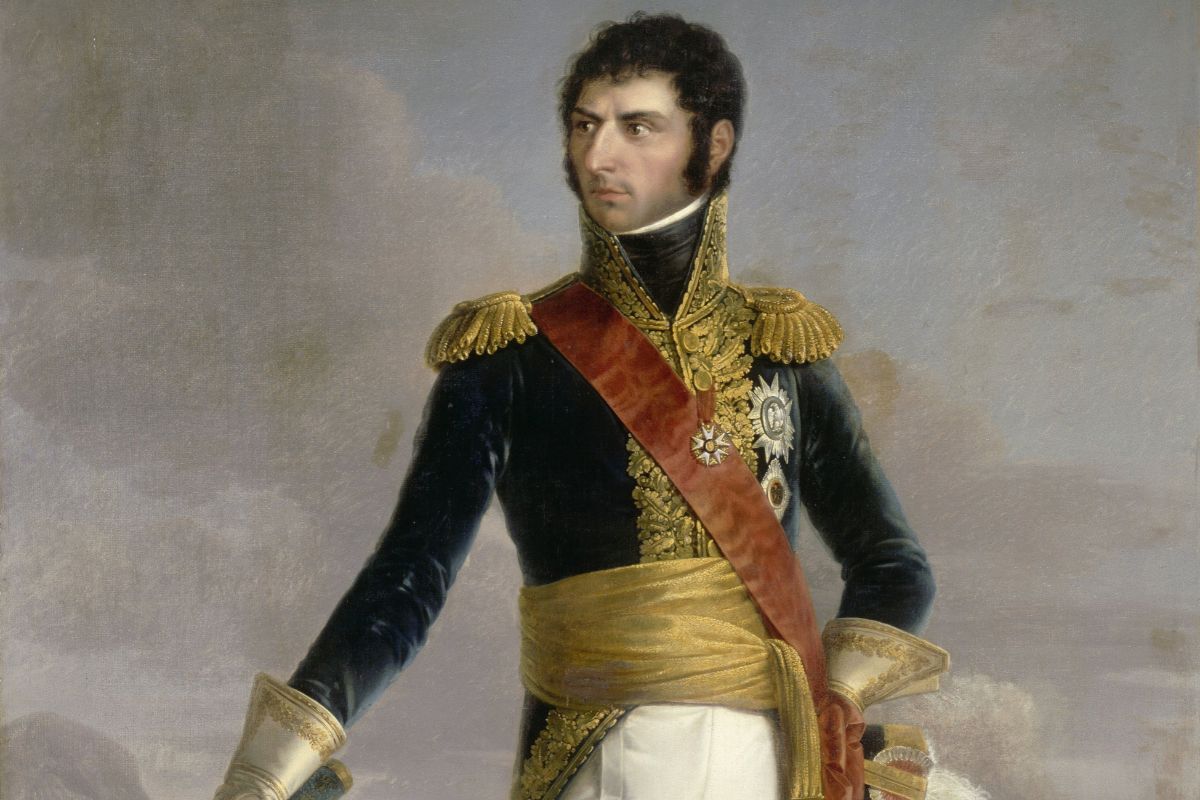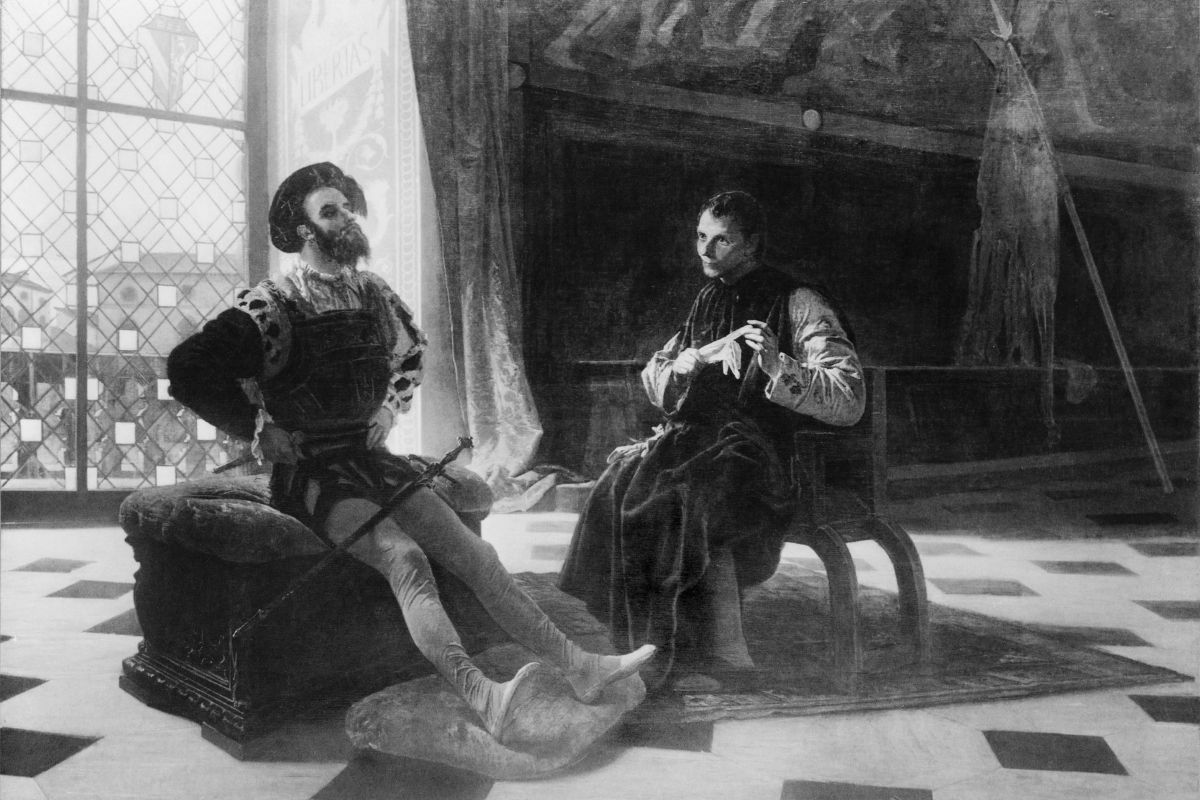The Prince, by Niccolò Machuavelli, is one of the most famous philosophical books of all time.
This is clear from the fact that it’s regularly thought about, and read, today, even though it was published almost 500 years ago in 1532.

That’s half a millenium! Clearly, there has long been lots to learn from its philosophy, for better or worse.
You’ll probably have heard of the author, Machiavelli, who was a philosopher, writer, historian, and even Italian diplomat during the Renaissance period.
In fact, you’ve probably encountered his name, because it became an adjective: “Machiavellian”.
This description is used for people who arte unscrupulous and scheming, especially when it comes to politics.
With this in mind, you can have some idea of the kinds of philosophical messages that are present in The Prince (If you like philosophical writings, also check out the Books of Robert Musil)!
We’ve got plenty to unpack about The Prince in our review (see also: We Begin At The End Review)below, looking at the messages and meanings of this famous text. Read on!
The Prince – Synopsis
The Prince is a political treatise, which means that it’s a written discourse on the subject of politics.
In a sense, it’s like a really long, deep essay that thoroughly investigates politics at the time.
The book is divided up into a number of sections, each with their own philosophies, and every part of it has been discussed and commented on for centuries since it was written.
It’s impossible to summarize it all, like you might with a novel, but we can certainly look at an overview of some of the key sections and themes!
The Prince opens with a letter to Lorenzo de’ Medici, who was the Duke of Urbino.
The letter suggests that the book is meant for Lorenzo, which is why many have taken the book as a proper, practical guide for rulers to follow.
However, a share of scholars have also suggested that the book is supposed to be satirical instead, highlighting how a ruler should not do things.
Whatever the case, there are plenty of teachings in it that could either be valuable advice – or valuable warnings.
The next couple of chapters outline what the book is going to focus on, which is autocratic regimes.
These are regimes where a single ruler has unlimited power, which is the opposite of a republican regime, where the power lies with the population or their representatives.
As a result, the book then explains how a ruler can keep their “composite principalities”, which are principalities that have been newly created.
A little later on, Machiavelli gets into what makes a great prince, highlighting their qualities.
One of the biggest takeaways from this is that Machiavelli believes that a successful prince shouldn’t be virtuous. When a prince follows virtues, as admirable as they might be, then their state will suffer.
Immediately, you might be surprised at this! However, this is the general line of advice that Machiavelli will continue to give in The Prince.
In his philosophy here, he believes that rulers should often do things we would consider unvirtuous or immoral, all to keep power and keep their land running.
This is the reason why some have seen the book as a satire, because it’s quite an extreme viewpoint to take.
Continuing the theme, Machiavelli goes on to say that rulers carrying out vicious moves are sometimes worth it for the greater good of the state.
However, Machiavelli doesn’t think this kind of behavior should be obvious. No, instead a ruler should try to appear virtuous, rather than actually being virtuous.
If they keep this appearance up, while still ruling in occasionally immoral ways, it will capture the goodwill of their people.
Having your people view you with goodwill is essential to successful ruling, thinks Machiavelli, because you need their support and compliance to keep your power.
The last few parts of the book look at Italy’s history at the time, putting Machiavelli’s teachings into a real case study.
Italy was suffering disunity back then, and a string of their rulers had clearly failed somewhere.
Machiavelli uses this to emphasize the philosophies he’s taught in the book, begging the future rulers of Italy to follow the advice in The Prince so that they can restore the country’s pride.
Machiavelli’s Morals

As you’ve been able to tell from the synopsis, Machiavelli is certainly promoting a controversial view in The Prince of how things should be done.
His philosophy is quite selfish, because it repeatedly excuses immoral behavior from rulers, saying that it’s better to keep power and keep things running.
It’s very much an “ends justify the means” kind of view, and the means can be increasingly troubling.
This is a dangerous way of doing things, especially when you have as much power and influence as a ruler does.
When you view things in this dangerous way, it’s easy for it all to get further out of hand, with rulers justifying every single immoral means they come up with as just something to achieve a “positive end”.
If a ruler were to follow the philosophy laid out in The Prince, they would have a free pass to do plenty of immoral things to their people, all with the excuse that it’ll supposedly help them maintain the land better.
However, when you start acting immorally, it’s easy to stray further and further from virtue. It’s almost like a landslide when you start acting this way, because it’s easy to get swept away and out of control.
Instead, it would be much better to live – and rule – morally. Though it may occasionally make it harder to rule the land and maintain power, it avoids the dangers of getting sucked into the unvirtuous path of life.
Better yet, it would maintain the goodwill of the people much more. Why go to the effort of pretending to look virtuous, rather than just being truly virtuous in the first place?
Many of the people will see through fake virtuosity anyway, and they will become disillusioned and disagree with their ruler. Staying moral, on the other hand, will inspire the people – making them confident in their land.
A Way To Read Modern Society
When reading The Prince, it is unfortunately very easy to recognize a lot of the behavior that Machiavelli is promoting.
Whether he is writing genuinely or satirical, either way we can see a lot of controversial advice and rulong techniques on display in our world today, which is very sad.
All across the world, and especially in lots of major countries, we’ve seen plenty of politicians and presidents using immoral behavior just so that they can stay in power.
Machiavellian is a word that could describe so many real life rulers, who use cunning to keep their positions, lying to the people that they are supposed to serve.
It’s impressive (and sad!) that a book written almost 500 years ago is as worryingly relevant today as it was then, maybe even more so.
It would be great if today’s rulers could use the book as a cautionary tale, or satire, and note that its ruling methods are the opposite of what should be followed.
Learning From The Prince
As well as teaching us how not to rule, there are quite a few other positive things we can learn from The Prince.
For one thing, the idea of getting a new principality is one that could be learned from. It doesn’t have to be all to do with a ruler taking on new land, but instead the same general advice could be used for smaller-scale things.
For example, if a company is taking on another company, it’s kind of the same thing.
The people from the other company are going to be pretty uncertain about their new “rulers”, and so Machiaveli’s advice on making the new people feel at home is a great thing to follow.
The new bosses can organize meetings with the new employees, getting to know them and their concerns, and leaving them with the impression that their new bosses are here to help.
With this, the new employees will be inspired and work better, bettering the company!
Another piece of advice from The Prince that should be followed is that rulers should take proper, strong stances on things.
There are so many issues and causes in the world today, and it’s important that rulers take proper stances on them. After all, what else are rulers for?
However, they shouldn’t just take weak stances on them, sitting on the fence and not really doing anything about it.
Instead, they should take strong stances, because strong stances usually lead to action. With action, the causes can be properly dealt with, and the ruler’s land should become a better place for it!
Final Thoughts
The Prince by Niccolò Machuavelli is a famous book all about how rulers should rule their land. However, it’s filled with controversial advice, suggesting that they should lack virtue and let the ends justify the means. It’s worth reading, but very important not to follow it!
- What Is The Longest Harry Potter Book? - July 3, 2023
- What Books Make Up The Riordanverse? - July 3, 2023
- Who Are The Main Characters In Percy Jackson? - July 3, 2023
